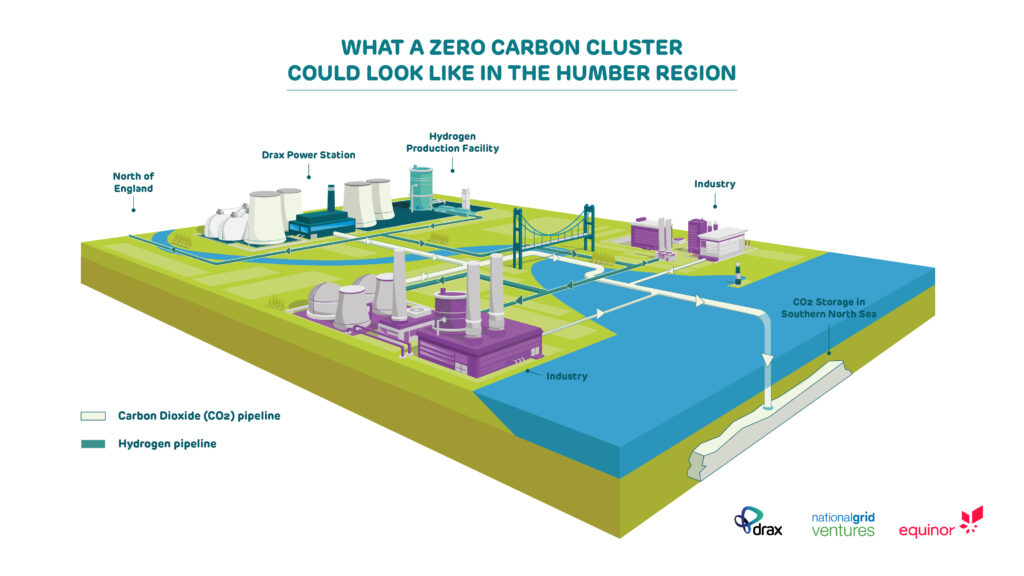Drax, Equinor and National Grid’s Ventures arm have signed a memorandum of understanding (MOU) to collaborate on zero-carbon power stations in the UK.
The trio have pledged to work together to explore how a large-scale carbon capture usage and storage (CCUS) network could be paired with a hydrogen production facility, and have even earmarked a site in the Humber region for its development.
Drax, which owns various generation assets throughout the UK and has announced plans for battery storage projects, described the initiative as the “first significant action” from the power sector since the Committee on Climate Change’s landmark Net Zero report, which concluded CCUS and hydrogen technologies to be pivotal to any net zero economy target.
The MOU commits the three companies to explore opportunities to scale-up Drax’s bioenergy carbon capture and storage (BECCS) pilot project at Drax Power Station in North Yorkshire, explore the potential for the development of a large-scale hydrogen demonstrator within the site, and to assess strategic opportunities to establish a hydrogen economy in the region.
Drax said that its flagship power station was already capturing a tonne of carbon dioxide each day using the BECCS technology and, if upscaled, the site could serve as an “anchor” for a regional CCUS network.
A study outlining the technical, economic and societal opportunities for CCUS and hydrogen in the Humber region is to be published by the trio later this year.
Will Gardiner, chief executive at Drax Group, said that the partnership was committed to putting Great Britain “at the heart of the global energy revolution”.
“With Drax’s carbon negative power station, the Humber region could lead the world in new technologies that can deliver for the climate and the economy, helping to create a cleaner environment for future generations whilst creating new jobs and export opportunities for British businesses.”
Irene Rummelhoff, executive vice president for marketing, midstream and processing at Equinor, lauded the Norwegian state-backed utility’s position as a “global leader” in CCS technologies and said it was committed to bringing forward sustainable energy solutions.
“We are pleased to be partnering with Drax and National Grid Ventures in looking at how the Humber region can be a launch pad for wider decarbonisation in the UK economy and be an example for others to learn from. Globally we must see substantial decarbonisation of industry and energy in the years ahead, and we believe CCS and hydrogen must play a significant role in this,” she said.
The UK’s relationship with CCUS technologies has been temperamental at best. The CCC has long called for it to be supported by the government, continually arguing that meeting climate objectives without it would be significantly challenging, however the scrapping of a £1 billion competition in November 2015 has only served to stymie the industry’s growth and investment potential.





